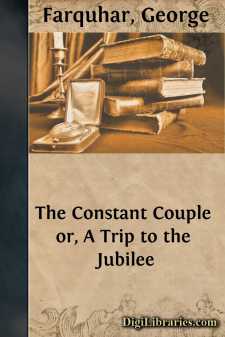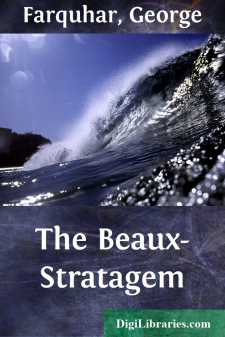Categories
- Antiques & Collectibles 13
- Architecture 36
- Art 48
- Bibles 22
- Biography & Autobiography 813
- Body, Mind & Spirit 142
- Business & Economics 28
- Children's Books 17
- Children's Fiction 14
- Computers 4
- Cooking 94
- Crafts & Hobbies 4
- Drama 346
- Education 46
- Family & Relationships 57
- Fiction 11829
- Games 19
- Gardening 17
- Health & Fitness 34
- History 1377
- House & Home 1
- Humor 147
- Juvenile Fiction 1873
- Juvenile Nonfiction 202
- Language Arts & Disciplines 88
- Law 16
- Literary Collections 686
- Literary Criticism 179
- Mathematics 13
- Medical 41
- Music 40
- Nature 179
- Non-Classifiable 1768
- Performing Arts 7
- Periodicals 1453
- Philosophy 64
- Photography 2
- Poetry 896
- Political Science 203
- Psychology 42
- Reference 154
- Religion 513
- Science 126
- Self-Help 84
- Social Science 81
- Sports & Recreation 34
- Study Aids 3
- Technology & Engineering 59
- Transportation 23
- Travel 463
- True Crime 29
George Farquhar
George Farquhar (1677–1707) was an Irish playwright known for his witty and lively comedies. He is best remembered for "The Recruiting Officer" (1706) and "The Beaux' Stratagem" (1707), both of which reflect his sharp social observations and engaging humor. Farquhar's plays often depicted the manners and foibles of Restoration society, combining satire with a keen understanding of human nature. His career was cut short by his early death at age 29, but his works remain influential in the history of English theatre.
Author's Books:
Sort by:
by:
George Farquhar
REMARKS. George Farquhar, the author of this comedy, was the son of a clergyman in the north of Ireland. He was born in the year 1678, discovered an early taste for literature, and wrote poetic stanzas at ten years of age. In 1694 he was sent to Trinity College, Dublin, and there made such progress in his studies as to acquire considerable reputation. But he was volatile and poor—the first...
more...
by:
George Farquhar
PREFACE The Author. 'It is surprising,' says Mr. Percy Fitzgerald, 'how much English Comedy owes to Irishmen.' Nearly fifty years ago Calcraft enumerated eighty-seven Irish dramatists in a by no means exhaustive list, including Congreve, Southerne, Steele, Kelly, Macklin, and Farquhar—the really Irish representative amongst the dramatists of the Restoration, the true prototype of...
more...



